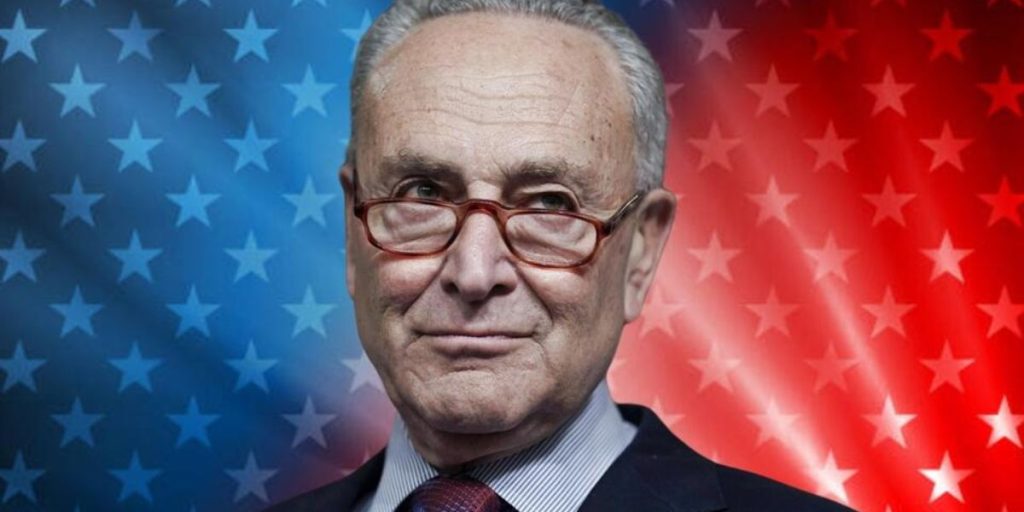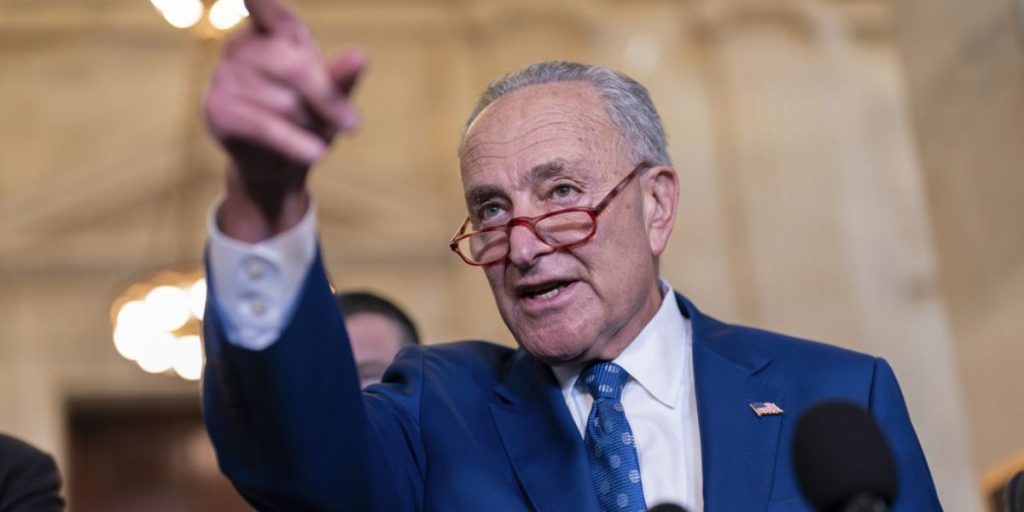Majority Leader Chuck Schumer (D-NY) underlined the importance of avoiding a government shutdown and ensuring full funding for fiscal year 2024 during a recent Senate floor address.
Senator Schumer called for bipartisan cooperation to approve the 12 appropriations bills based on previously agreed-upon funding levels, with the impending threat scheduled to take effect on January 19th.
“For the most part, both parties, Democrats and Republicans, agree that we don’t want a shutdown,” Schumer, the senator from New York, said. “Instead, we want to work together to pass the appropriations bills as quickly as possible.”

Recognizing the time restrictions, Senator Schumer took the first procedural step by introducing a dummy bill to fund the government for a short period of time.
The New York Senator advised members to be ready for the first procedural vote after the Martin Luther King Jr. holiday.
“A government shutdown would be a recipe for chaos,” Senator Schumer warned, underscoring the importance of acting quickly. “I urge my Republican colleagues in the Senate to work with us to keep this process moving quickly on the floor.”
The Senate leader confirmed ongoing negotiations with Senate Minority Leader Mitch McConnell (R-KY) on the subject, emphasizing the majority’s agreement that a shutdown would be disastrous.
Senator Schumer, on the other hand, voiced concern about a faction of hard-right radicals in the House who appear likely to push for a shutdown.
“There are those on the hard right who think they can bully their colleagues and the country into a shutdown,” Schumer said in a statement.
Senator Schumer questioned the motivations of hard-right extremists, highlighting the potential implications of a shutdown.

“How could the country benefit from freezing nutrition programs for 7 million women, infants, and children?” Or should regional VA offices be closed, leaving veterans without benefits? Senator Schumer stated, “These extremists are not serious about governing.”
Senator Schumer slammed the rationale of those campaigning for a government shutdown.
“When the hard right demands a shutdown, they want VA closures, no food inspections, and delayed military benefits.” “This demonstrates that the hard right isn’t serious about governing,” Senator Schumer said.
Senator Schumer ended on a positive note, emphasizing the importance of compromise in today’s political environment.
“Reasonable members on both sides of the aisle in both chambers are ready to work together to ensure a government shutdown is avoided,” he said. As the Senate approaches this key deadline, bipartisanship remains a top priority.
The approaching prospect of a government shutdown, as underlined by Senate Majority Leader Chuck Schumer, highlights the seriousness of the problem confronting the country.
The potential implications, which range from frozen nutrition programs for vulnerable populations to delayed payments for veterans who have served their nation, provide a gloomy picture of the impact on ordinary Americans.
The need for bipartisan cooperation cannot be emphasized, as failing to avert a shutdown would not only interrupt important services but would also reflect a profound lack of commitment to governance.
As the clock approaches the January 19th deadline, rapid and concerted action is critical to ensuring the stability and well-being of the American people.